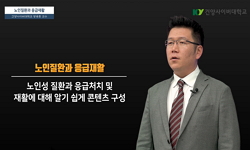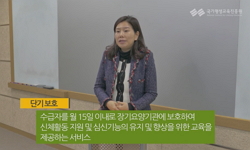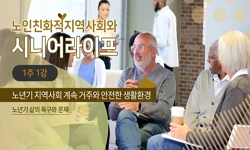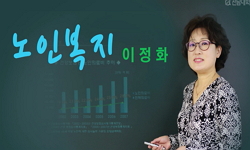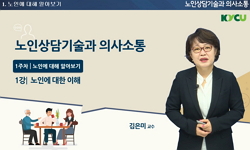As our society is getting aged rapidly, people are interested in the securities for the aged. The satisfaction related to quality of life for the aged equally applies to the people using the welfare institutions. Normally people think different when i...
http://chineseinput.net/에서 pinyin(병음)방식으로 중국어를 변환할 수 있습니다.
변환된 중국어를 복사하여 사용하시면 됩니다.
- 中文 을 입력하시려면 zhongwen을 입력하시고 space를누르시면됩니다.
- 北京 을 입력하시려면 beijing을 입력하시고 space를 누르시면 됩니다.
https://www.riss.kr/link?id=T11632882
- 저자
-
발행사항
서울: 동국대학교 사회과학대학원, 2009
-
학위논문사항
학위논문(석사) -- 동국대학교 사회과학대학원 사회과학대학원 , 사회복지학과 , 2009. 2
-
발행연도
2009
-
작성언어
한국어
- 주제어
-
DDC
362.61 판사항(22)
-
발행국(도시)
서울
-
형태사항
vii, 89장: 삽도; 26cm.
-
일반주기명
동국대학교 논문은 저작권에 의해 보호받습니다.
지도교수:김용택 - DOI식별코드
- 소장기관
-
0
상세조회 -
0
다운로드
부가정보
다국어 초록 (Multilingual Abstract)
As our society is getting aged rapidly, people are interested in the securities for the aged. The satisfaction related to quality of life for the aged equally applies to the people using the welfare institutions. Normally people think different when it comes to living standards and quality of life related to welfare institutions. However, in reality, there is no difference, rather there is a need to do more in case of welfare institutes as more and more facilities are needed to meet the rapidly aging society. These institutions play a very important role not only supporting the aged in terms of number of institutes that are available, but having good facilities to provide good quality of life to the aged. In order to reach the standards of quality, there are several things related to providing efficient services. The purpose for this study is to provide basic data to develop services for those residing in the welfare institutions free of cost.
This study reflects how the factors in personal, family, social, and welfare facilities influence on the satisfaction of aged people who stay in the institutions free. This study results from the research conducted from 24th Sept 2008 to 5th Oct 2008 by the 250 aged who live in the 5 free welfare facilities located in Busan, Ulsan, Kyungju in KyungBuk province, and Yangsan in Kyungnam. Out of these only 186 polls were used in the statistics. All collected data was analyzed by SPSS Win 12.0 program with frequency analysis, technical statistics analysis, t-test, one-way ANOVA, scheffe’s multiple range test.
To sum the research up, the result is as following.
First of all, I analyzed their general traits with all these factors.
In the personal factors, by gender, there are more females in the institutions, by age the majority was between 81 and 85 years old, in terms of education, most of them have no school background, and the people who stays in the religious institutions were satisfied with their religions, and in health wise, they don’t think they are in a good health.
In the family factors, the majority was separated by their spouse death.
In the society factors, the majority don’t maintain contacts with families, relatives, or friends.
In case of worries, agonies, they don’t want to talk with the staffs in the institutions; however they have their close friends in the same institutions.
The factors related to facilities, they are quite satisfied with external ( location of the institutions, environments around the institutions, reputation of the institution, the view of institution…), internal environments ( facilities, cleaning, design of the institutions, safety facilities, convenient facilities, heating system, conditions of bedroom), services, and staffs ( eventor programs for them, medical service, foods, standard caring, daily schedule, staffs’level in terms of numbers, quality, intimacy with staffs)
Secondly, during this research I have found these factors influence on their living satisfaction. This research shows that these factors make their living different, according to their health conditions, gender, age, religions.
The result reveal that female, aged and religious and those who think they are healthy tend to be more satisfied with their lives as compared to male, aged, non-religions, and those who think they not healthy.
In the family factors, there doesn’t seem to be an influence on the living satisfaction.
In the social factors, those who have more contact with families are more satisfied, on the contrary, those who have less contact with friends outside of institutions got more satisfied. However having close friends in the same institutions make them satisfied.
In institutions’ conditions factor, I find the highly satisfied in this matter, the higher their living satisfaction is.
Third, by this research I find out how these factors influence on the old people’s living satisfaction, the most effective factor in personal factors are age, the second factor is health condition. In the family contact wise, social relation don’t influence on the living satisfaction much. From the facilities aspect, bedclothes influence on their satisfaction much, the next one are heating system, services, and staffs’ hospitalities.
As the study above shows us, to improve the aged living conditions, and free institutions’ facilities, the government leads them to modernize andspecialize these institutions by supporting them financially, encourage them to socialize with people like institution’ staffs or friends to achieve these things. Also regularly they need to evaluate them until they are settled down without government control. Additionally we need more facilities to support old people’s health, some better programs suitable for their mental, personal states.
국문 초록 (Abstract)
우리 사회의 고령화 현상이 급속도록 전개됨에 따라 최근 노후 생활만족에 관심이 모아지고 있다. 노인 생활에 삶의 질적인 지표로 여겨져 온 생활만족도의 향상은 시설거주노인이라고 다...
우리 사회의 고령화 현상이 급속도록 전개됨에 따라 최근 노후 생활만족에 관심이 모아지고 있다. 노인 생활에 삶의 질적인 지표로 여겨져 온 생활만족도의 향상은 시설거주노인이라고 다를 수는 없으며 오히려 노인 시설의 필요성과 수요가 증가하고 있는 현 시점에서 시설은 노인 부양의 한 장으로서의 역할을 해야 하며, 시설 서비스를 효과적으로 제공함으로써 입소 노인의 생활만족도를 높이기 위한 활동에 더 힘써야 한다.
따라서 본 연구는 무료양로시설 입소노인의 생활만족도를 파악하기 위해 개인요인, 가족요인, 사회적 관계요인, 시설 관련요인 등이 입소 노인들의 생활만족도에 어떠한 영향을 미치는가를 분석함으로써 무료양로시설 입소노인의 삶의 질 향상을 위한 서비스를 개발하는데 기초자료를 제공하는데 그 목적이 있다.
본 연구는 부산광역시, 울산광역시, 경북 경주시, 경남 양산시 등에 소재하고 있는 무료양로시설 5곳의 노인을 대상으로 2008년 9월 24일부터 10월 5일까지 총 250명에 대해 설문조사를 실시하였으며, 이중 186부가 통계에 사용이 되었다. 수집된 자료는 SPSS Win 12.0 프로그램을 이용하여 빈도분석(Frequency Analysis),기술통계분석, t-test, 일원변량분석(one-way ANOVA), 다중범위 검정(Scheffe's multiple range test)을 실시하여 분석하였다.
본 연구의 결과를 요약하면 다음과 같다.
첫째, 무료양로시설 입소 노인들의 개인요인, 가족요인, 사회적 관계요인, 시설 관련 요인을 중심으로 일반적 특성을 분석한 결과, 먼저 개인요인으로 성별에 있어 남성보다 여성의 비율이 높게 나타났으며, 연령은 81-85세가 가장 많았고, 학력은 무학이 과반수이상으로 나타났다. 종교를 가진 노인들이 대부분 종교에 만족하였으며, 노인들 스스로 느끼는 주관적인 건강상태는 ‘좋지 않다’고 응답하는 노인들이 많았다. 가족요인의 경우 대부분이 배우자와 사별한 것으로 나타났으며, 사회적 관계요인은 가족, 친척, 시설 외부 친구와는 방문빈도와 전화 빈도 모두 대부분 ‘거의 없음’으로 나타났고, 고민이나 걱정거리를 상의하는 직원이나 시설 내 동료에서도 ‘거의 없음’으로 나타났으며, 시설 내 친하게 지내는 친구에는 과반수 이상이 친구가 ‘있음’으로 응답하였다. 시설 관련요인의 경우 외부환경(입지조건, 외부환경조건, 시설에 대한 평판 및 시각에 대한 만족도)과 내부환경(시설만족, 청결, 전반적 구조, 안전시설, 편의시설, 침실난방, 침구류), 그리고 서비스 및 직원(식사, 프로그램, 의료서비스, 일상적 보살핌, 하루일과, 직원들의 수준 및 질, 직원과의 관계)에 대해 모두 긍정적으로 만족하고 있는 것으로 나타났다.
둘째, 무료양로시설 입소 노인들의 개인요인, 가족요인, 사회적 관계요인, 시설 관련요인에 따라 노인들의 생활만족도의 차이를 분석한 결과로 개인요인에서는 성별과 연령, 종교, 건강상태에 따라 유의미한 차이가 나타났으며, 여성노인이 남성노인보다, 종교가 있는 노인이 종교가 없는 노인보다, 주관적으로 건강하게 느끼는 노인이 그렇지 못하다고 느끼는 노인보다 만족도가 높게 나타났다. 가족요인에서는 유의미한 차이가 없는 것으로 나타났으며 사회적 관계요인에서는 가족과의 전화 빈도가 많을수록 만족도가 높게 나타난 반면, 시설 외부 친구와의 전화 빈도는 적을수록 만족도가 높고, 시설 내 친하게 지내는 친구의 수는 많을수록 만족도가 높게 나타났다. 시설 관련요인에서는 외부환경, 내부환경, 서비스 및 직원의 만족도에 따라 유의미한 차이가 나타났으며, 외부환경 및 내부환경, 침실(방)의 난방, 서비스 및 직원의 만족도가 높을수록 생활만족도가 높은 것으로 나타났다.
셋째, 개인요인, 가족요인, 사회적 관계요인, 시설 관련요인에 따라 무료양로시설에 거주하는 노인들의 생활만족도에 어떠한 요인이 영향을 미치는가를 분석한 결과, 개인요인에서 생활만족도에 가장 큰 영향을 미치는 요인은 연령, 그 다음이 건강상태로 나타났다. 가족요인과 사회적 관계 요인은 생활만족도에 미치는 영향요인으로 나타나지 않았으며, 시설 관련요인은 침실(방)의 침구류 만족도가 생활만족도에 가장 큰 영향을 미치는 요인으로 나타났고, 그 다음이 침실(방)의 난방 만족도, 서비스 및 직원의 만족도 순이었다.
이상에서 확인된 결과에서 무료양로시설 입소 노인의 시설 생활의 만족도를 높이고 삶의 질 향상을 위한 대책으로 정부에서의 재정적인 지원과 시설의 현대화와 전문화를 위한 시설지원이 필요하고, 입소 노인을 둘러싸고 있는 사회적 관계에 대한 적극적 활용과 이를 위한 주기적인 재사정과 평가가 이루어지도록 해야 하며, 시설 노인의 건강상태 증진을 위한 시설개선 및 입소 노인의 심리적?성격적 특성에 적합한 프로그램이 개발되어져야 할 것이다.
목차 (Table of Contents)
- 제1장 서론 = 1
- 제1절 문제제기 및 연구의 필요성 = 1
- 제2절 연구목적 = 3
- 제3절 연구범위 및 한계 = 4
- 제2장 이론적 배경 = 6
- 제1장 서론 = 1
- 제1절 문제제기 및 연구의 필요성 = 1
- 제2절 연구목적 = 3
- 제3절 연구범위 및 한계 = 4
- 제2장 이론적 배경 = 6
- 제1절 양로시설의 개념과 필요성 = 6
- 1. 양로시설의 개념 = 6
- 2. 양로시설의 기능 = 10
- 3. 양로시설의 필요성 = 11
- 제2절 생활만족도의 개념과 요인 = 14
- 1. 생활만족도의 개념 = 14
- 2. 생활만족도에 영향을 미치는 요인 = 16
- 제3절 선행연구 고찰 = 23
- 제3장 조사방법 = 26
- 제1절 연구모형 = 26
- 제2절 조사대상 및 자료수집 = 27
- 제3절 조사도구 = 27
- 제4절 자료분석 방법 = 30
- 제4장 조사결과 분석 = 32
- 제1절 무료양로시설 입소 노인들의 각 요인별 특성 = 32
- 1. 개인요인별 특성 = 32
- 2. 가족요인별 특성 = 34
- 3. 사회적 관계요인별 특성 = 34
- 4. 시설 관련요인별 특성 = 38
- 제2절 각 요인에 따른 생활만족도의 차이 = 42
- 1. 개인요인에 따른 생활만족도의 차이 = 42
- 2. 가족요인에 따른 생활만족도의 차이 = 46
- 3. 사회적 관계요인에 따른 생활만족도의 차이 = 48
- 4. 시설 관련요인에 따른 생활만족도의 차이 = 53
- 제3절 개인요인, 가족요인, 사회적 관계요인, 시설 관련요인이 생활 만족도에 미치는 상대적인 영향 = 57
- 1. 각 요인들과의 상관관계 분석 = 57
- 2. 각 요인들이 생활만족도에 미치는 영향 = 60
- 제5장 결론 및 제언 = 66
- 제1절 요약 및 결론 = 66
- 제2절 제언 = 71
- 참고문헌 = 74
- 부록 = 79
- Abstract = 86





